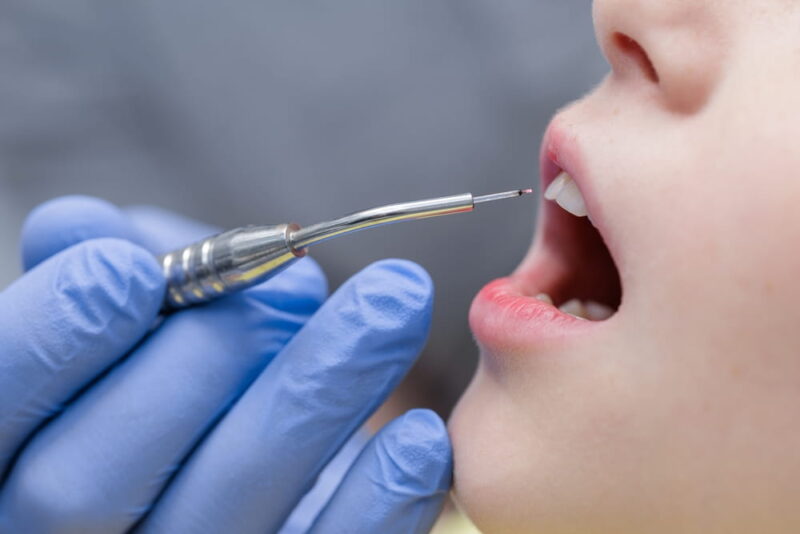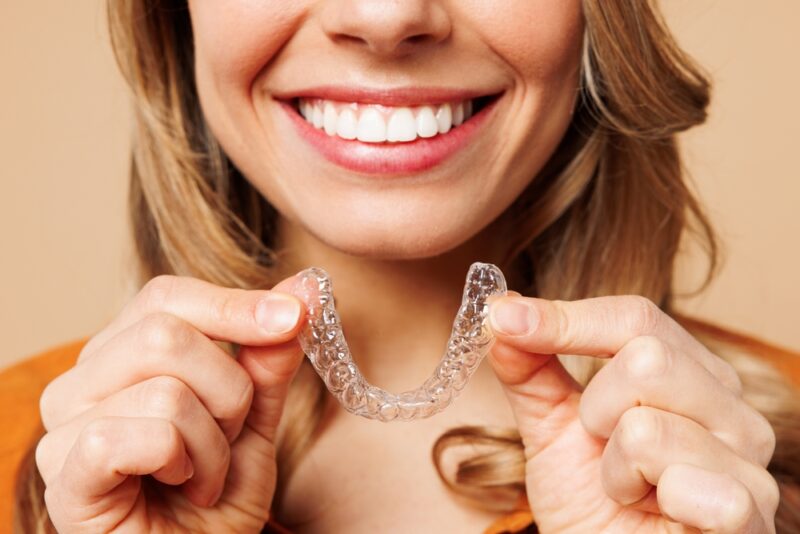Thumb-sucking is a natural and common behavior for infants and toddlers. It’s a soothing reflex that can help young children feel comforted, relaxed, and secure—especially during nap time, bedtime, or stressful moments. For many children, thumb-sucking fades on its own by the time they’re 2 to 4 years old. However, when the habit continues beyond early childhood, it can begin to affect your child’s oral and dental health in ways that may require professional intervention later on.
If your child is still sucking their thumb after their permanent teeth start to come in—typically around age 5—it’s time to start actively helping them break the habit. Here’s what every parent should know about thumb-sucking, how it can impact your child’s dental development, and how to gently encourage them to stop.
Why Thumb-Sucking Can Be Harmful to Your Child’s Smile
When done occasionally in infancy, thumb-sucking is usually harmless. But as your child grows, especially once their baby teeth and then permanent teeth begin to erupt, frequent or aggressive thumb-sucking can interfere with healthy oral development. Some of the most common dental issues linked to prolonged thumb-sucking include:
- Misaligned teeth – The pressure from a thumb resting or pushing against the upper front teeth can cause them to shift forward, resulting in an overbite or open bite.
- Changes in jaw shape – The repetitive motion of sucking can impact the natural growth and alignment of your child’s jaw and palate (roof of the mouth).
- Speech problems – Long-term thumb-sucking can lead to issues with speech development, including lisps or difficulty forming certain sounds due to changes in oral structure.
- Increased orthodontic needs – Many children who continue thumb-sucking past early childhood are more likely to need braces or other orthodontic treatment later on.
That’s why it’s important to gently and patiently help your child stop the habit before it causes lasting damage.
Tips to Help Your Child Stop Thumb-Sucking
Helping your child break the thumb-sucking habit can take time and consistency, but with encouragement and a positive approach, it’s absolutely doable. Here are a few tips that can help:
1. Start by Identifying Triggers
Many children suck their thumb for comfort when they’re tired, anxious, bored, or in need of reassurance. Take note of when your child tends to suck their thumb and try to identify any patterns. Are they doing it when watching TV, falling asleep, or during moments of stress? Once you understand the triggers, you can begin to address the underlying need in healthier ways—such as offering a stuffed animal, blanket, or verbal comfort.
2. Offer Positive Reinforcement
Rather than punishing your child for sucking their thumb, try using praise and rewards when they go without it. Create a sticker chart to celebrate “thumb-free” days, or set small goals and offer a reward when they reach a milestone. Positive reinforcement helps build your child’s confidence and motivation to stop.
3. Use Gentle Reminders
If your child is old enough to understand, remind them gently when you notice them sucking their thumb. Avoid scolding or shaming—your goal is to support, not punish. For example, you can say, “Remember, we’re trying to keep our thumbs out of our mouths to help your teeth grow in nice and straight.”
4. Try Comfort Substitutes
If your child sucks their thumb as a way to self-soothe, provide a comforting substitute. A soft toy, cozy blanket, or even a soothing nighttime routine can help fill the need for comfort without involving their thumb.
5. Use Visual Tools
Some children respond well to seeing progress. Consider using a mirror so your child can see themselves when they’re tempted to suck their thumb, or read books together that talk about giving up thumb-sucking. These visual and narrative tools can make the concept more relatable and easier to understand.
6. Talk to Your Dentist
If your child is having trouble quitting, don’t hesitate to reach out to your pediatric dentist. We’re here to help and can offer personalized advice, monitor your child’s dental development, and recommend tools like a thumb guard or dental appliance if needed. Early intervention can prevent more serious issues later on.
A Healthier Smile Starts with Small Habits
While thumb-sucking can be a tough habit to break, with the right support and strategies, your child can grow out of it successfully. The earlier you address it, the easier it will be to protect your child’s developing smile. Keep your approach patient, loving, and consistent—and always remember that you’re not alone. Aloe Dental Wellness is here to help you every step of the way.
Choose Aloe Dental Wellness For All Your Dentistry Needs
At Aloe Dental Wellness, you can expect the very best in dental care with Dr. Daniela Cadavid. Before your appointment, you can expect to enjoy soothing music and fresh coffee, tea, and water in our relaxing patient lounge. Our office is a child-friendly, family-oriented environment, and we pride ourselves on the ability to make patients of all ages comfortable.
Dr. Cadavid is glad to offer a brand-new office equipped with the latest technology and services in both English and Spanish to UCSB students and staff, as well as the surrounding communities. Aloe Dental Wellness in Santa Barbara County is proud to provide general, cosmetic, and emergency dentistry services to meet the needs of your entire family as well. For an appointment, call us at 805-454-7727 today.




